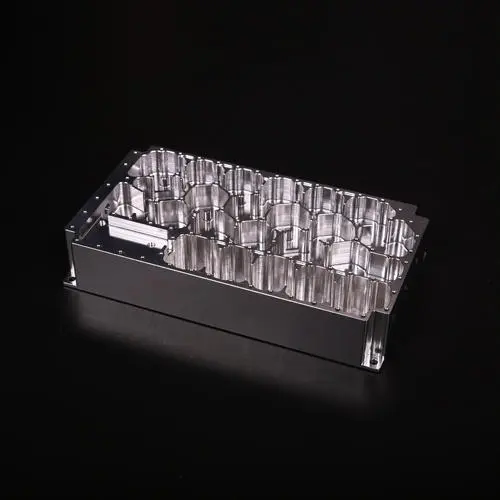Custom CNC Auto Parts Filters: Your Ultimate Q&A Guide
2024-11-04
In the automotive industry, the demand for precision-engineered components has never been higher. Custom CNC auto parts filters are at the forefront of this trend, providing tailored solutions for various applications. In this blog, we’ll explore the essential questions surrounding custom CNC auto parts filters to help you understand their benefits, manufacturing processes, and applications.
What are custom CNC auto parts filters?
Custom CNC auto parts filters are precision-engineered filtration components manufactured using Computer Numerical Control (CNC) technology. These filters are designed to meet specific requirements for various automotive applications, such as air, oil, and fuel filtration. By leveraging CNC machining, manufacturers can create filters with exact dimensions, shapes, and performance characteristics tailored to individual client specifications.
What are the advantages of using custom CNC auto parts filters?
Custom CNC auto parts filters offer several advantages, including:
1. Precision: CNC machining allows for tight tolerances, ensuring that the filters fit perfectly in their intended applications and perform effectively.
2. Material Variety: Manufacturers can choose from a wide range of materials, such as aluminum, stainless steel, or plastic, to produce filters that meet specific environmental and performance needs.
3. Efficiency: Custom filters can enhance the overall efficiency of the vehicle by providing optimal filtration, which helps improve engine performance and longevity.
4. Reduced Lead Times: With CNC technology, production times can be significantly shortened compared to traditional manufacturing methods, allowing for quicker turnaround and delivery.
5. Scalability: CNC machining is scalable, making it suitable for both small-scale production runs and large orders.
How are custom CNC auto parts filters manufactured?
The manufacturing process for custom CNC auto parts filters typically involves the following steps:
1. Design and Engineering: The first step is to create a detailed design using CAD (Computer-Aided Design) software. This design includes specifications such as dimensions, material choices, and filtration requirements.
2. CNC Machining: The designed filter is then produced using CNC machines, which can perform various operations, including milling, turning, and drilling. The machines follow the precise instructions from the CAD files, ensuring accuracy and consistency.
3. Finishing: After machining, filters may undergo additional finishing processes, such as polishing, anodizing, or coating, to enhance their durability and performance.
4. Quality Control: Each filter is subjected to rigorous quality control measures to ensure it meets specified standards and performance criteria.
5. Assembly: If the filters are part of a larger assembly, they may be integrated into other components or systems during the final assembly process.
What types of filters can be produced using custom CNC machining?
Custom CNC machining can produce a wide variety of filters for different automotive applications, including:
1. Air Filters: Designed to filter incoming air to the engine, helping improve combustion efficiency and performance.
2. Oil Filters: Essential for removing contaminants from engine oil, ensuring optimal lubrication and engine health.
3. Fuel Filters: These filters prevent dirt and debris from entering the fuel system, maintaining fuel cleanliness and performance.
4. Hydraulic Filters: Used in hydraulic systems to filter out impurities and ensure smooth operation of hydraulic components.
5. Cabin Air Filters: Designed to improve air quality inside the vehicle by filtering out dust, pollen, and other pollutants.
How do I choose the right custom CNC auto parts filter for my application?
When selecting a custom CNC auto parts filter, consider the following factors:
1. Application Requirements: Identify the specific filtration needs for your automotive system, such as the type of fluid or air being filtered and the contaminants to be removed.
2. Material Selection: Choose the appropriate material based on environmental conditions, compatibility, and desired performance characteristics.
3. Dimensions and Tolerances: Ensure that the filter's dimensions and tolerances align with the specifications of the components it will be integrated with.
4. Performance Standards: Look for filters that meet or exceed industry performance standards for filtration efficiency and durability.
5. Manufacturer Reputation: Choose a reputable manufacturer with experience in producing high-quality custom filters to ensure reliability and performance.
What are the typical applications for custom CNC auto parts filters in the automotive industry?
Custom CNC auto parts filters are utilized in various applications within the automotive industry, including:
1. Engine Systems: For air, oil, and fuel filtration, ensuring optimal performance and longevity.
2. Transmission Systems: To maintain fluid cleanliness and prevent contamination that could lead to component failure.
3. Hydraulic Systems: Used in vehicles with hydraulic steering, braking, and lifting systems to ensure smooth operation and prevent wear.
4. Cooling Systems: In coolant filtration applications to maintain the efficiency of cooling components and prevent overheating.
5. Aftermarket Upgrades: Many car enthusiasts opt for custom filters as part of performance upgrades to improve engine efficiency and responsiveness.
How can I maintain custom CNC auto parts filters?
Proper maintenance of custom CNC auto parts filters is crucial for ensuring their longevity and effectiveness. Here are some maintenance tips:
1. Regular Inspection: Periodically check filters for signs of wear, damage, or clogging.
2. Cleaning: Depending on the type of filter, regular cleaning may be necessary to remove accumulated debris and contaminants.
3. Replacement Schedule: Follow the manufacturer's recommendations for filter replacement to maintain optimal performance.
4. Monitoring Performance: Keep an eye on engine performance and efficiency, as changes may indicate that the filter needs attention.
Conclusion:
Custom CNC auto parts filters are essential components in modern vehicles, providing tailored solutions for various filtration needs. By understanding their advantages, manufacturing processes, and applications, you can make informed decisions that enhance your automotive systems. Whether you’re in the automotive manufacturing sector or an enthusiast looking for upgrades, investing in custom CNC auto parts filters can significantly impact performance and reliability.



